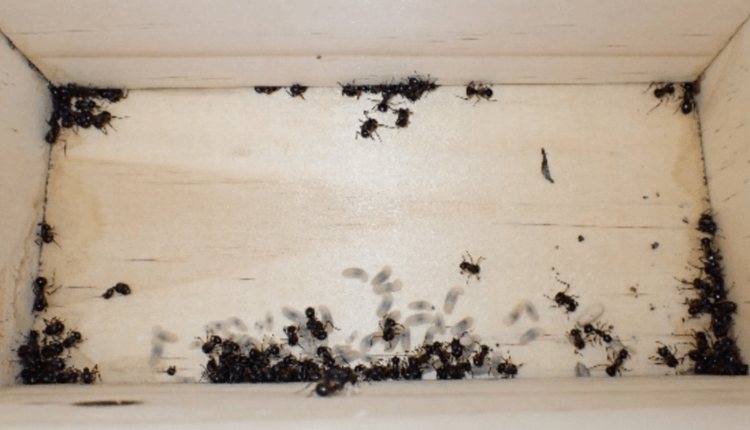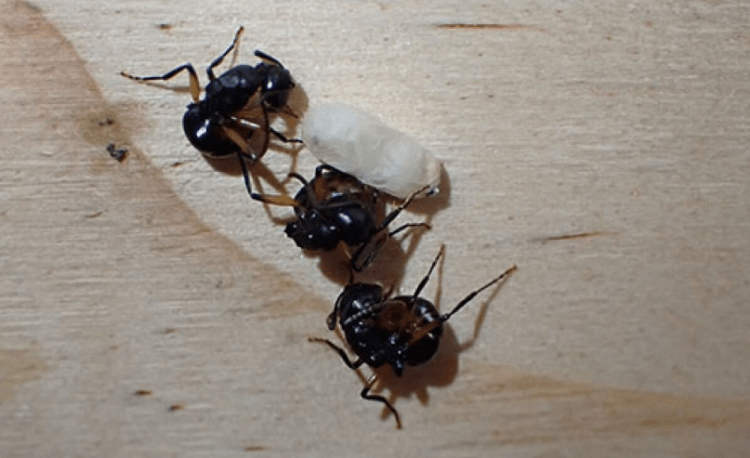Researchers studying various species of animals on Australia’s Kangaroo Island stumbled upon a colony of Polyrhachis femorata ants that they believed was dead until one of its members moved slightly.
Feigning death, also known as thanatosis or tonic immobility is a well-documented defense mechanism observed in dozens of animal species, from insects and lizards to birds and mammals. Some of these natural actors are better than others at playing dead, but what they all have in common is implying this particular defense strategy on an individual basis. However, in what many consider a world-first, a team of researchers encountered an entire colony of dozens of ants that all played dead at the same time when threatened. And they all played their part so well, contorting their bodies in unnatural positions and remaining completely still, that the team was convinced they were all dead.

Photo: S. ‘Topa’ Petit
“The mimicry was perfect,” Assoc Professor S. ‘Topa’ Petit said. “When we opened the box, we saw all these dead ants…and then one moved slightly. This sort of defensive immobility is known among only a few ant species – in individuals or specific castes – but we don’t know of other instances when it’s been observed for entire colonies.”
The researchers were checking pygmy-possum and bat nest boxes on Kangaroo Island when they encountered one full of what looked like a bunch of dead ants. It turned out to be an Oscar-winning performance, one that was recreated several times in laboratory conditions, to hopefully learn more about the strategy. It didn’t always play out as perfectly as the first time, though and the team admits that figuring out the signal for feigning death will be tricky.

Photo: S. ‘Topa’ Petit
“In some of the boxes containing colonies of Polyrhachis femorata, some individuals took a while to stop moving, and others didn’t stop. The triggers for the behavior are difficult to understand,” Prof. Petit added.
Scientists suspect that the colony-wide death-feigning strategy is a self-defense mechanism, which suggests that it may be more effective in smaller colonies of ants, simply because of the greater likelihood that all individuals would remain immobile at one time. A single “bad actor” could spell disaster for the entire colony.






